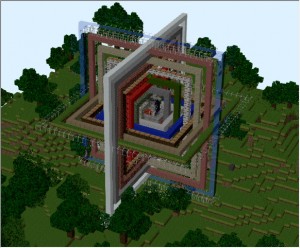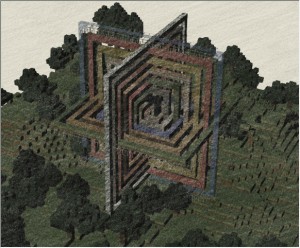My crazy-person project for the month is done. It’s a little program called Mineways, which is a bridge between Minecraft and Shapeways, the 3D printing service. You can grab a chunk of a Minecraft world for rendering or 3D printing. See the Mineways Flickr group for some results.
Tag Archives: Shapeways
Seven things for 10/10/11
- If you can get WebGL running properly on your browser, check out Shader Toy. Coolest thing is that you can edit any shader and immediately try it out.
- Another odd little WebGL application is a random spaceship maker, with a direct tie-in to Shapeways to buy a 3D version of any model you make.
- Speaking of Shapeways, I liked their “one coffee cup a day project“. The low-resolution cup is particularly good for computer graphics people, though I’m told that in real life it’s a fair bit more rounded off, due to the way the ceramic sets. Ironic. Also, note that these cups are actually quite small in real life (smaller than even espresso cups), which is too bad. Still, clever.
- Source code for iOS versions of Castle Wolfenstein and the original DOOM is now available.
- Patrick Cozzi has a nice rundown of his days at SIGGRAPH this August, with a particular emphasis on OpenGL and mobile. The links for each day are at the bottom of the entry.
- Nice fractal video generated in near-real time (300 ms/frame) running a GLSL shader using this code. Reddit thread here, about an earlier video now pulled back online.
- This site gives a darn long list of educational institutions offering videogame design degrees. It’s at least a place to start, if you’re looking for such things. That said, I’ve heard counterarguments from game company professionals to such specialized degrees, “just learn to program well and we’ll teach you the videogames business”.
Bonus thing: Draw a curve of your data for a number of years and see what it most closely correlates. Peculiar.

